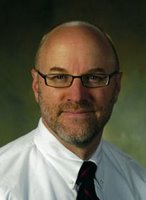Take medicine as art and distill it into a coding language. Politics as sausage is sterile by comparison.
Coding taxonomies seem dry until you recognize the magnitude of their influence in our current f**ked up healthcare system. John refers to them as deadweight. I prefer to think of them as red matter. I don't have the patience or aptitude to distill our healthcare dreck into a better future state. Thanks to John, I don't have to.
